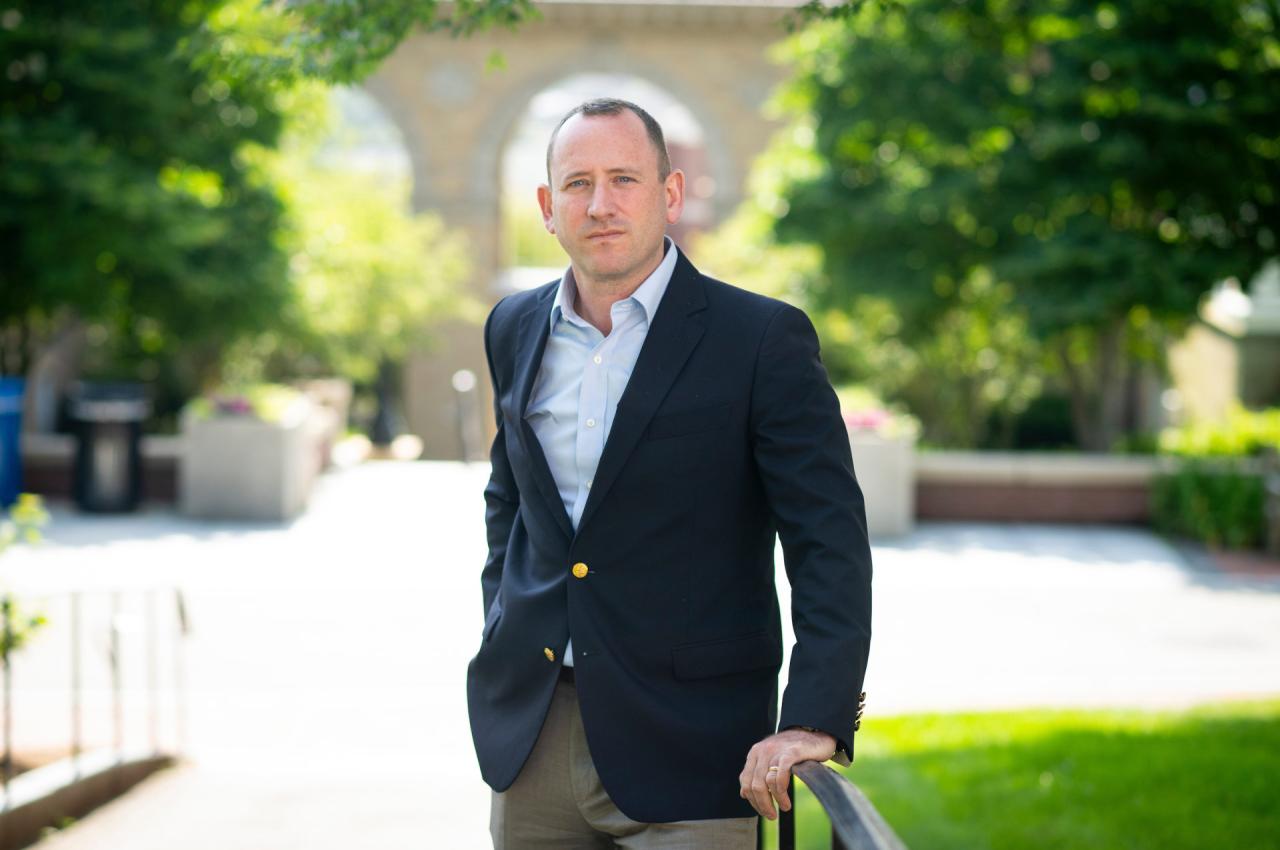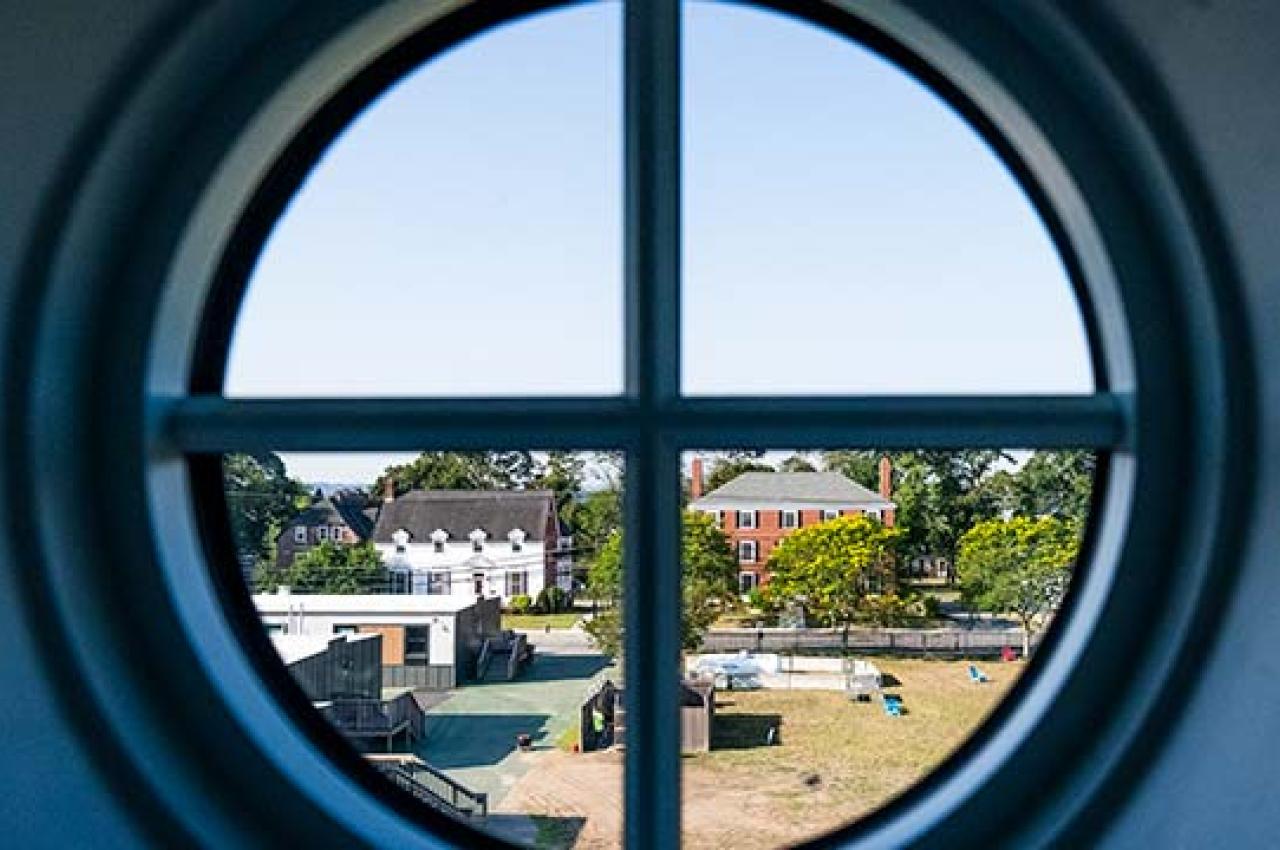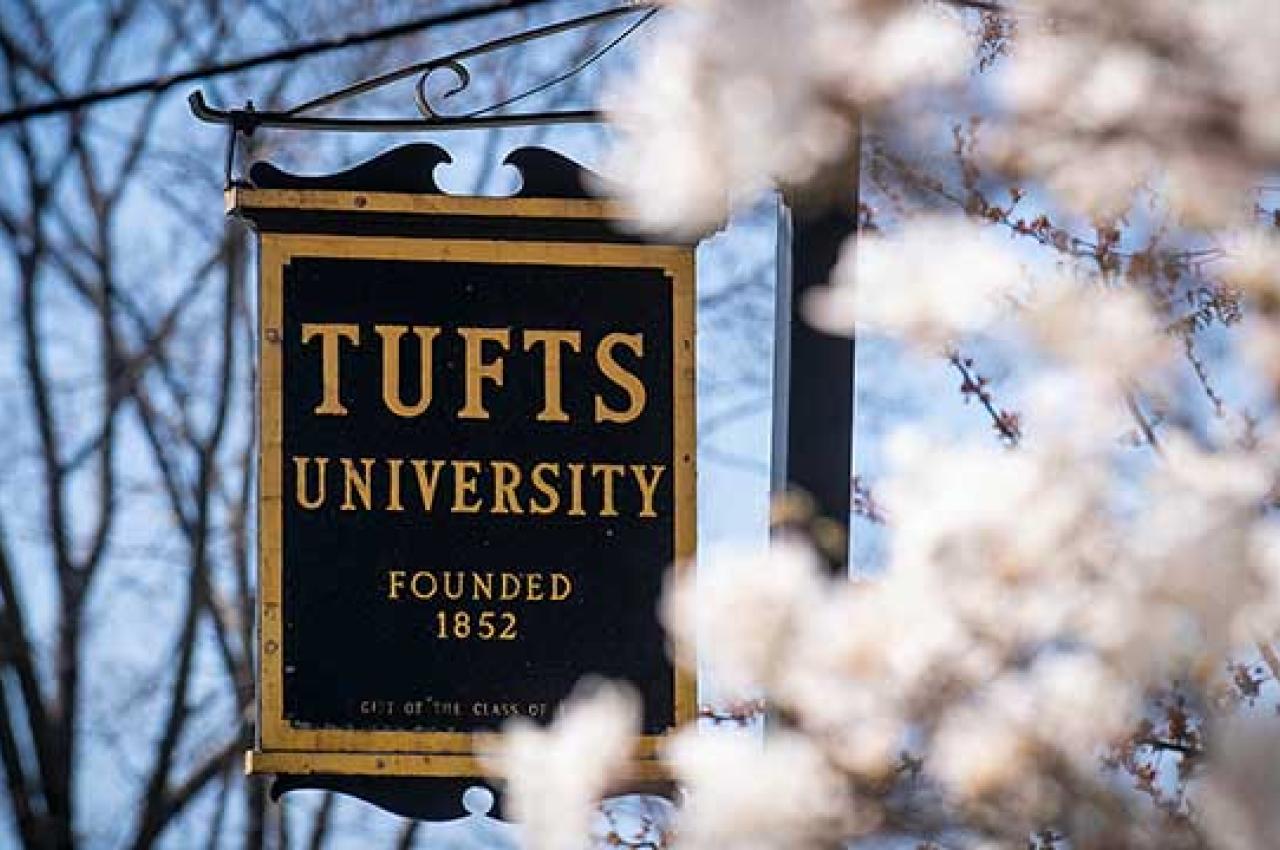New Center to Bring Wider Political Perspectives to Tufts and Other Universities
Two years ago, Eitan Hersh, A05, a professor of political science, started offering a class called American Conservatism, using a social science lens to focus on public policy. It proved to be a big hit, drawing full attendance—and the attention of outside media such as the Wall Street Journal.
Hersh thought that the hunger of his mostly politically liberal students to learn more about a wide set of viewpoints in American politics deserved more than a single class. Most elite universities in America are liberal, he says, with students and faculty living in a bubble. That doesn’t help students learn about the complex world they will be working and living in, nor help faculty be as effective as they could be in teaching and research.
As he devised his course in 2022, Hersh thought of a way to bring wider political perspectives to higher education. That effort is now taking the form of the new Tufts Center for Expanding Viewpoints in Higher Education.
“We want to be good teachers, learners, and scholars,” says Hersh, founding director of the center. “And we can’t do that unless we’re learning from a lot of different people. The challenge at Tufts and other universities is that we haven’t done a good enough job bringing different voices into the university.”
The Center for Expanding Viewpoints in Higher Education, based in the Office of the President, will host events with a diversity of speakers, as well as perform research to expand viewpoints on higher education curricula on a variety of topics, such as immigration and gender and sexuality studies. It will also coordinate events with the Tisch College of Civic Life and the Center for the Enhancement of Learning at Teaching at Tufts.
The center has an advisory committee made up of Tufts faculty. “Democracy depends upon people with conflicting views talking with one another,” says committee member Michael Glennon, professor of constitutional and international law at The Fletcher School. “Academe is the perfect place to learn the value of a vigorous and robust marketplace of ideas.”
“One of the most important goals of higher education is to provide an environment that allows students to interrogate their own beliefs and biases and expand their horizons by exposing them to different perspectives,” says committee member Amy Kuhlik, dean of student affairs at the School of Medicine. “For those studying medicine, it’s imperative to value and respect various opinions and viewpoints. Our students will work with patients from a lot of different backgrounds, and also will team up with other professionals to provide patient care. That means listening to and respecting a lot of different voices and viewpoints.”
“I think it’s good to be in dialogue with people who have positions that are substantially different from our own,” says committee member Ken Garden, professor of religion. The center could “provide an opportunity to think about other perspectives than your own—maybe strengthening your views or seeing blind spots in views that you hold.”
He also noted that the advisory committee will act as a sounding board for the center’s leaders. “The committee and other members of the faculty could weigh in questions of what kind of viewpoints we’re considering and what kind of dialogue or encounters we should be fostering.”
The center was launched with an initial investment exceeding $5 million, provided by several foundations and individual donors across the ideological spectrum, including trustees and advisors of Tufts.
Tufts Now spoke with Hersh to learn more about his plans for the center and what he hopes it will accomplish.
Why do you think we need such a center now?
This is something that I have been thinking about for a long time. I think there is a problem in higher education, including at a university like Tufts, with a lack of viewpoint diversity. I think the solution is to genuinely work with faculty and students to provide compelling resources and connections with different points of view. It’s a very positive, collaborative vision.
If we want to have students who know how the political world around them works, they need to be engaging with perspectives not just from progressive, fairly secular people. We really need to understand political and policy issues from all sides. I don’t think our students have always engaged well with a diversity of perspectives, particularly with conservatives.
Are there other centers like this across the country?
I think our model’s a little different than some of the ones that I’ve seen outside of Tufts, in part because Tufts is different than those other institutions. Some centers that are being established across the country are really focused on bringing conservative faculty and conservative programming to their institutions. I’m genuinely committed to expanding viewpoints, which means making sure we do have conservative voices on campus but other voices as well.
What will be the main focuses for the center?
There are three things I’m concentrating on: campus cultural experiences for students, research activities, and curriculum.
The campus cultural experience focuses primarily on undergrad students. We are hoping to have programs from a weekly lunch series to bigger headline events, which will provide interesting perspectives, including conservative and religious perspectives, on issues of our day.
We want students to be comfortable having a hard conversation about a hard issue with people they disagree with, to be mature adults who can learn from other people, where they understand how someone else thinks.
Beyond one-off events, we’re going to have fellowships and more sustained opportunities for students who aspire to be civic leaders on campus and beyond.
Our focus, by the way, isn’t just in Arts and Sciences. Our new associate director, Arik Burakovsky, comes out of the Fletcher School, and we’re looking forward to programming on international issues as well. Similarly, we’ll be looking to engage with the health science community on the Boston campus to be a resource both for teaching and research.
What will the research focus be?
We want to make sure that we are thinking about topics for research broadly. For example, I’m working with a student on the question of state vice policy—looking at state laws on marijuana, online sports betting, and pornography.
This research project came out of my conservatism class, where we were reading about pornography regulation. I was stunned by the students’ engagement with that issue, and that they were overwhelmingly interested in more restrictive state policy on it than I had imagined.
Our students have grown up in a really liberalized environment on all three of these vices compared to any generation before them. And they all know other students or friends who are affected by these issues—they might have a serious gambling addiction, a serious marijuana problem.
What’s interesting about this issue is that I don’t even know what positions the left and the right have on these issues. That is, I’m not sure what “left” or “right” means with regard to these issues. But I do know that very few scholars are studying these issues relative to how important they are in the world, at least in the United States. This is just an example of an area where it’d be great to bring together social scientists with addictions experts and religious voices, and other stakeholders to engage with novel ideas and research.
Are there other areas of research you will focus on?
Probably every academic field has issues with dissent and gatekeeping. If you are in a field where your research shows something that is counter to the dominant narrative—it could be on climate change, gender transition, COVID restrictions—you can be discounted as an outlier.
In my field, I’ve been both on the dominant and non-dominant side of issues around voter ID laws and their effects, where the results seem threatening to different ideological groups. Every field has an issue with dissent like this.
We want to work on how to approach dissent responsibly—how should scholars think about the gatekeeping that happens in academia? We want to keep crazy ideas out and serious ideas in, but at the same time, we don’t want to restrict serious ideas that are just not popular.
The third area of focus for the center is curriculum development—what is that about?
There are a lot of topics in higher education that are not taught with a very careful eye towards viewpoint diversity. We aspire to create model curricula on a range of topics like immigration, gender and sexuality, and global conflicts, to provide resources to faculty and students around the country to learn about a wider range of viewpoints on these topics.
For example, if you look at syllabi across the country on the topic of immigration, a lot of them give very little attention to why anyone would possibly support a restrictive immigration policy. We want to bring in topics related to cultural conflict on immigration, economic upsides and downsides, border security. We’ve collected 75 to 100 syllabi on immigration policy from across the country. They often give really scant attention to why anyone would not support an open immigration policy.
I want Tufts to be a national leader for innovative teaching on politically sensitive issues, so that students can expect to really understand all sides of these issues. I think we can create resources that will be used around the country. And I think our faculty, so many of whom are fabulous teachers, can really be models for how to teach effectively on difficult subjects.
Latest Tufts Now
- Blakeley Hall Gets New Life as Undergraduate DormThe makeover of an historic residence building expands student housing with upgraded accessibility and a new lounge, courtyard, and other amenities
- Know Your ’DontistsYour regular dentist might refer you to a periodontist, an endodontist, or another specialist, but what do they actually do?
- How to Tell If You Have a Food Allergy or IntoleranceWhether an immune system reaction or digestive difficulty, the cause of your discomfort determines the appropriate treatment
- Tufts Affirms Commitment to Institutional PluralismTo safeguard free speech and promote open inquiry, Tufts will avoid official statements on issues not related to the institution’s mission
- Immune Molecule Long Tied to Inflammation May Benefit the Aging BrainStudy shows that STING, a molecule that some experimental drugs seek to block, may actually help protect the brain against Alzheimer’s-like decline
- Making Progress Toward Equitable Food Systems in the Mississippi DeltaA School of Medicine assistant professor highlights community members’ stories to understand and address their unique food access challenges













